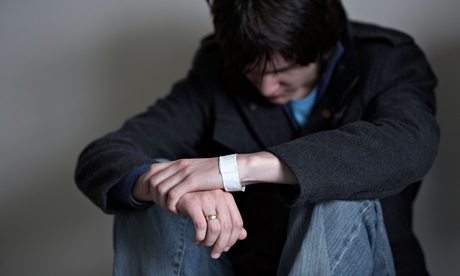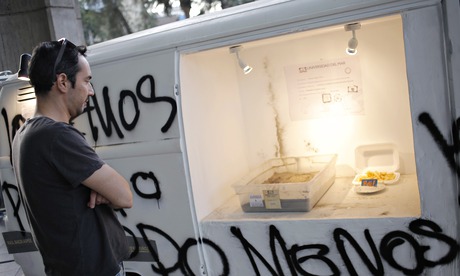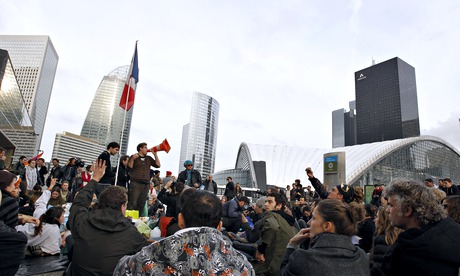Extracted by Girish Menon
This was a shocking idea to me. Of course the rich were human and had their woes, but I never thought of them as needy.I could begin to see it now. Their money had brought them material comforts and some level of protection from the inconveniences and impositions of more ordinary everyday life. But their money and the lifestyle of privilege also cut them off from the richness of ordinary everyday life, the more normal and healthy give and take of relationships and useful work, the best of the human experience. Often their wealth distorted their relationship with money and only widened the gap between their soulful life and their interactions around money. Sexual abuse, psychological abuse, addictions, alcoholism, abandonment and brutality are part of the dysfunctional world that hides behind walled communities, mansions and darkened car windows. Hurtful rejections, custody suits, legal battles for the purpose of attaining more and more money harden family members and shut them down from each other. The access to money and power at high levels can amplify these situations and make them even more lethal and unbearably cruel.
----
The Toxic Myths of Scarcity
Myths and superstitions have power over us only to the extent that we believe them., but when we believe, we live completely under their spell and in that fiction. Scarcity is a lie, but it has been passed down as truth and with a powerful mythology that insists on itself, demands compliance and discourages doubt or questioning.
Toxic Myth # 1: There's Not Enough
There's not enough becomes the reason we do work that brings us down or the reason we do things to each other that we're not proud of. There's not enough generates a fear that drives us to make sure that we're not the the person, or our loved ones aren't the people, who get crushed, marginalised or left out
Once we define our world as deficient, the total of our life energy, everything we think, everything we say and everything we do - particularly with money - becomes an expression of an effort to overcome this sense of lack and the fear of losing to others or being left out. It becomes noble and responsible to make sure we take care of our own, whoever we deem them to be. If there's not enough for everyone, then taking care of yourself and your own, even at the others' expense, seems unfortunate but unavoidable and somehow valid. It's like the game of musical chairs. With one seat short of the number of people playing, your focus is on not losing and not being the one who ends up at the end of the scramble without a seat. We don't want to be the poor suckers without, so we compete to get more than the other guy, determined to stay ahead of some impending doom.
...As members of the global community, our fear based responses lead us at times - in the demand for foreign oil, for instance - to put our own material desires above the health, safety and well being of other people and other nations. In our own communities, we respond to the fear that there's not enough by creating systems that favor us or exclude others from access to basic resources such as clean water, good schools, adequate health care or safe housing. And in our families, there's not enough drives us to buy more than we need or even want of some things to value, favour or curry favour with people on the basis of their value to us in relation to money, rather than qualities of character.
Toxic Myth # 2: More is Better
More of anything is better than what we have. It's the logical response if you fear there's not enough, but more is better drives a competitive culture of accumulation, acquisition and greed that only heightens fears and quickens the pace of the race. And none of it makes life more valuable. In truth, the rush for more distances us from experiencing the deeper value of what we acquire or already have. When we eat too fast or too much, we cannot savour any single bite of food. When we are focussed constantly on the next thing - the next dress, the next car, the next job, the next vacation, the next home improvement - we hardly experience the gifts of that which we have now. In our relationship with money, more is better distances us from living more mindfully and richly with what we have.
More is better is a chase with no end and a race without winners. It's like a hamster wheel that we hop onto, get going, and then forget how to stop. Eventually, the chase for more becomes an addictive exercise, and as with any addiction, it's almost impossible to stop the process when you're in its grip. But no matter how far you go, or how fast, or how many other people you pass up, you can't win. In the mind-set of scarcity, even too much is not enough.
It doesn't make sense to someone who makes forty thousand dollars a year that someone who makes five million dollars a year would be arguing over their golden parachute package and need at least fifteen million dollars more. Some of the people with fortunes enough to last three lifetimes spend their days and nights worrying about losing money on the stock market, about being ripped off or conned or not having enough for their retirement. Any genuine fulfilment in their life of financial privilege can be completely eclipsed by these money fears and stresses. How could people who have millions of dollars think they need more? They think they need more because that is the prevailing myth. We all think that, so they think that too. Even those who have plenty cannot quit the chase. The chase of more is better no matter what our money circumstances demands our attention, saps our energy and erodes our opportunities for fulfilment. When we buy into the premise that more is better we can never arrive. People who follow that credo, consciously or unconsciously, which is all of us to some degree - are doomed to a life that is never fulfilled; we lose the capacity to reach a destination. So even those who have plenty, in this scarcity culture, cannot quit the chase.
More is better misguides us in a deeper way. It leads us to define ourselves by financial success and external achievements. We judge others based on what they have and how much they have, and miss the immeasurable inner gifts they bring to life. all the great spiritual teachings tell us to look inside to find the wholeness we crave, but the scarcity chase allows no time or psychic space for that kind of introspection. In the pursuit of more we overlook the fullness and completeness that are already within us waiting to be discovered. Our drive to enlarge our net worth turns us away from discovering and deepening our self worth.
The belief that we need to possess, and possess more than the other person or company or nation, is the driving force for much of the violence and war, corruption and exploitation on earth. In the condition of scarcity, we believe we must have more - more oil, more land, more military might, more market share, more profits....more money. In the campaign to gain, we often pursue our goals at all costs, even at the risk of destroying whole cultures and peoples.
.... Do we need or even really want all the clothing, cars, groceries and gadgets we bring home from our shopping trips; or are we acting on impulse, responding to the call of the consumer culture and the steady, calculated seduction by fashion, food and consumer product advertising?...
Toxic Myth #3: That's Just The Way It Is
The third toxic myth is that that's just the way it is, and there's no way out. There's not enough to go around, more is definitely better, and the people who have more are always people who are other than us. It's not fair, but we'd better play the game because that's just the way it is and it's a hopeless, helpless, unequal, unfair world where you can never get out of this trap.
That's just the way it is is just another myth, but it's probably the one with the most grip, because you can always make a case for it. When something has always been a certain way and tradition, assumptions or habits make it resistant to change, then it seems logical, just commonsensical, that the way it is is the way it will stay. This is when and where the blindness, the numbness, the trance and underneath it all the the resignation of scarcity sets in. Resignation makes us feel hopeless, helpless and cynical. Resignation also keeps us in line, even at the end of the line, where a lack of money becomes an excuse for holding back from commitment and contributing what we do have - time, energy and creativity - to making a difference. Resignation keeps us from questioning how much we'll compromise ourselves or exploit others for the money available to us in a job or career, a personal relationship or a business opportunity.
That's just the way it is justifies the greed, prejudice and inaction that scarcity fosters in our relationship with money and the rest of the human race. For generations, it protected the early American slave trade (The Indian caste system) from which the privileged majority built farms, towns, business empires and family fortunes many of which survive today. For more generations it protected and emboldened institutionalised racism, sex discrimination and social and economic discrimination against other ethnic and religious minorities. It has throughout history, and still today, enabled dishonest business and political leaders to exploit others for their own financial gain.
Globally, the myth of that's just the way it is makes it so that those with the most money wield the most power and feel encouraged and entitled to do so. For instance, the United States with 4 % of the world's population produces 25% of the pollution that contributes to global warming...... Meanwhile, developing countries adopting Western economic models are replicating patterns that, even in political democracies, place inordinate power in the hands of the wealthy few, design social institutions and systems that favour them and fail to adequately address the inherent inequities and consequences that undermine health, education and safety for all.
We say we feel bad about these and other inequities in the world, but the problems seem so deeply rooted as to be insurmountable and we resign ourselves to that's just the way it is, declaring ourselves helpless to change things. In that resignation, we abandon our own human potential, and the possibility of contributing to a thriving, equitable and healthy world.
That's just the way it is presents one of the toughest pieces of transforming our relationship with money, because if you can't let go of the chase and shake off the helplessness and cynicism it eventually generates then you're stuck. If you are not willing to question that, then it is hard to dislodge the thinking that got you stuck. We have to be willing to let go of that's just the way it is, even if just for a moment, to consider the possibility that there isn't a way it is or way it isn't. There is the way we choose to act and what we choose to make of circumstances.
----
The Toxic Myths of Scarcity
Myths and superstitions have power over us only to the extent that we believe them., but when we believe, we live completely under their spell and in that fiction. Scarcity is a lie, but it has been passed down as truth and with a powerful mythology that insists on itself, demands compliance and discourages doubt or questioning.
Toxic Myth # 1: There's Not Enough
There's not enough becomes the reason we do work that brings us down or the reason we do things to each other that we're not proud of. There's not enough generates a fear that drives us to make sure that we're not the the person, or our loved ones aren't the people, who get crushed, marginalised or left out
Once we define our world as deficient, the total of our life energy, everything we think, everything we say and everything we do - particularly with money - becomes an expression of an effort to overcome this sense of lack and the fear of losing to others or being left out. It becomes noble and responsible to make sure we take care of our own, whoever we deem them to be. If there's not enough for everyone, then taking care of yourself and your own, even at the others' expense, seems unfortunate but unavoidable and somehow valid. It's like the game of musical chairs. With one seat short of the number of people playing, your focus is on not losing and not being the one who ends up at the end of the scramble without a seat. We don't want to be the poor suckers without, so we compete to get more than the other guy, determined to stay ahead of some impending doom.
...As members of the global community, our fear based responses lead us at times - in the demand for foreign oil, for instance - to put our own material desires above the health, safety and well being of other people and other nations. In our own communities, we respond to the fear that there's not enough by creating systems that favor us or exclude others from access to basic resources such as clean water, good schools, adequate health care or safe housing. And in our families, there's not enough drives us to buy more than we need or even want of some things to value, favour or curry favour with people on the basis of their value to us in relation to money, rather than qualities of character.
Toxic Myth # 2: More is Better
More of anything is better than what we have. It's the logical response if you fear there's not enough, but more is better drives a competitive culture of accumulation, acquisition and greed that only heightens fears and quickens the pace of the race. And none of it makes life more valuable. In truth, the rush for more distances us from experiencing the deeper value of what we acquire or already have. When we eat too fast or too much, we cannot savour any single bite of food. When we are focussed constantly on the next thing - the next dress, the next car, the next job, the next vacation, the next home improvement - we hardly experience the gifts of that which we have now. In our relationship with money, more is better distances us from living more mindfully and richly with what we have.
More is better is a chase with no end and a race without winners. It's like a hamster wheel that we hop onto, get going, and then forget how to stop. Eventually, the chase for more becomes an addictive exercise, and as with any addiction, it's almost impossible to stop the process when you're in its grip. But no matter how far you go, or how fast, or how many other people you pass up, you can't win. In the mind-set of scarcity, even too much is not enough.
It doesn't make sense to someone who makes forty thousand dollars a year that someone who makes five million dollars a year would be arguing over their golden parachute package and need at least fifteen million dollars more. Some of the people with fortunes enough to last three lifetimes spend their days and nights worrying about losing money on the stock market, about being ripped off or conned or not having enough for their retirement. Any genuine fulfilment in their life of financial privilege can be completely eclipsed by these money fears and stresses. How could people who have millions of dollars think they need more? They think they need more because that is the prevailing myth. We all think that, so they think that too. Even those who have plenty cannot quit the chase. The chase of more is better no matter what our money circumstances demands our attention, saps our energy and erodes our opportunities for fulfilment. When we buy into the premise that more is better we can never arrive. People who follow that credo, consciously or unconsciously, which is all of us to some degree - are doomed to a life that is never fulfilled; we lose the capacity to reach a destination. So even those who have plenty, in this scarcity culture, cannot quit the chase.
More is better misguides us in a deeper way. It leads us to define ourselves by financial success and external achievements. We judge others based on what they have and how much they have, and miss the immeasurable inner gifts they bring to life. all the great spiritual teachings tell us to look inside to find the wholeness we crave, but the scarcity chase allows no time or psychic space for that kind of introspection. In the pursuit of more we overlook the fullness and completeness that are already within us waiting to be discovered. Our drive to enlarge our net worth turns us away from discovering and deepening our self worth.
The belief that we need to possess, and possess more than the other person or company or nation, is the driving force for much of the violence and war, corruption and exploitation on earth. In the condition of scarcity, we believe we must have more - more oil, more land, more military might, more market share, more profits....more money. In the campaign to gain, we often pursue our goals at all costs, even at the risk of destroying whole cultures and peoples.
.... Do we need or even really want all the clothing, cars, groceries and gadgets we bring home from our shopping trips; or are we acting on impulse, responding to the call of the consumer culture and the steady, calculated seduction by fashion, food and consumer product advertising?...
Toxic Myth #3: That's Just The Way It Is
The third toxic myth is that that's just the way it is, and there's no way out. There's not enough to go around, more is definitely better, and the people who have more are always people who are other than us. It's not fair, but we'd better play the game because that's just the way it is and it's a hopeless, helpless, unequal, unfair world where you can never get out of this trap.
That's just the way it is is just another myth, but it's probably the one with the most grip, because you can always make a case for it. When something has always been a certain way and tradition, assumptions or habits make it resistant to change, then it seems logical, just commonsensical, that the way it is is the way it will stay. This is when and where the blindness, the numbness, the trance and underneath it all the the resignation of scarcity sets in. Resignation makes us feel hopeless, helpless and cynical. Resignation also keeps us in line, even at the end of the line, where a lack of money becomes an excuse for holding back from commitment and contributing what we do have - time, energy and creativity - to making a difference. Resignation keeps us from questioning how much we'll compromise ourselves or exploit others for the money available to us in a job or career, a personal relationship or a business opportunity.
That's just the way it is justifies the greed, prejudice and inaction that scarcity fosters in our relationship with money and the rest of the human race. For generations, it protected the early American slave trade (The Indian caste system) from which the privileged majority built farms, towns, business empires and family fortunes many of which survive today. For more generations it protected and emboldened institutionalised racism, sex discrimination and social and economic discrimination against other ethnic and religious minorities. It has throughout history, and still today, enabled dishonest business and political leaders to exploit others for their own financial gain.
Globally, the myth of that's just the way it is makes it so that those with the most money wield the most power and feel encouraged and entitled to do so. For instance, the United States with 4 % of the world's population produces 25% of the pollution that contributes to global warming...... Meanwhile, developing countries adopting Western economic models are replicating patterns that, even in political democracies, place inordinate power in the hands of the wealthy few, design social institutions and systems that favour them and fail to adequately address the inherent inequities and consequences that undermine health, education and safety for all.
We say we feel bad about these and other inequities in the world, but the problems seem so deeply rooted as to be insurmountable and we resign ourselves to that's just the way it is, declaring ourselves helpless to change things. In that resignation, we abandon our own human potential, and the possibility of contributing to a thriving, equitable and healthy world.
That's just the way it is presents one of the toughest pieces of transforming our relationship with money, because if you can't let go of the chase and shake off the helplessness and cynicism it eventually generates then you're stuck. If you are not willing to question that, then it is hard to dislodge the thinking that got you stuck. We have to be willing to let go of that's just the way it is, even if just for a moment, to consider the possibility that there isn't a way it is or way it isn't. There is the way we choose to act and what we choose to make of circumstances.










